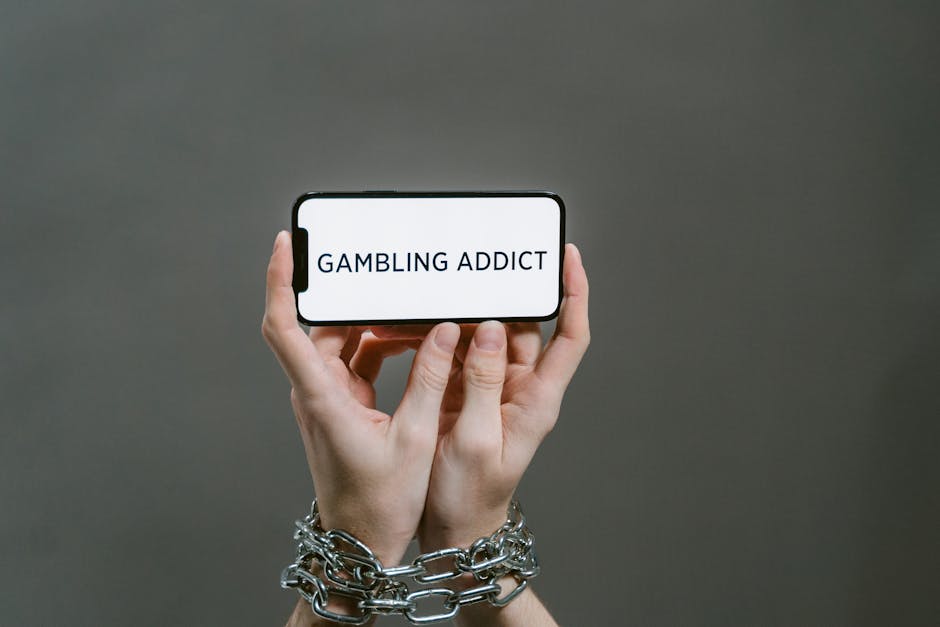The Psychological Toll of Gambling
Gambling taps into the brain’s reward system the same way drugs or sugar do. Every bet win or lose spikes dopamine. That brain chemical gives us a rush, and it’s why small wins or near misses can feel as thrilling as hitting the jackpot. The problem? The brain gets used to the highs and starts to crave another hit. Over time, people don’t gamble to win they gamble to feel normal.
This chase triggers more than just excitement. Studies link consistent gambling to spikes in anxiety, depression, and disrupted sleep patterns. The emotional swing between hope and loss takes a toll, especially as the line between entertainment and obsession starts to blur. Even casual gamblers can find themselves in deeper than they expected, sliding from control to compulsion in a matter of weeks.
The emotional red flags are easy to miss at first: irritability after losing, feeling guilty after playing, lying about the amount of time or money spent. Then comes the stress, mood swings, and growing sense of regret. When gambling starts to feel less like fun and more like pressure, it’s a cue worth taking seriously.
Strain on Relationships
Gambling doesn’t just affect the person placing the bets it ripples outward, often straining the closest relationships first. The emotional, financial, and behavioral consequences can quietly erode trust between partners, family members, and friends.
Hidden Habits and Secrets
One of the earliest signs of gambling related relationship issues is secrecy. As gambling grows more frequent or intense, many individuals begin hiding:
Financial activity, such as unaccounted withdrawals or hidden debts
Time spent gambling, masked as other commitments
Wins and losses, shared selectively or obscured entirely
This concealment can stem from shame, denial, or fear of judgment, but over time, secrecy becomes deception and that damages trust.
When Trust Breaks Down
Honesty is the foundation of any healthy relationship. Gambling can threaten that foundation in serious ways:
Spouses or partners may lose confidence in shared financial decisions
Children may sense tension or instability at home
Friends or extended family might grow distant due to repeated letdowns or requests for money
The result is often a widening emotional gap, where communication becomes defensive or avoidant.
Emotional Fallout from Wins and Losses
Even the outcome of a bet win or lose can destabilize a relationship:
A big win may spark overconfidence, unrealistic spending, or arguments about how the money should be used
A major loss often leads to mood swings, withdrawal, and blaming others
Frequent fluctuations in emotional or financial stability create anxiety for both the gambler and their loved ones
These dynamics can quickly turn a once loving relationship into one marked by conflict and emotional detachment.
When Gambling Becomes Isolation
While some may gamble socially, problem gambling tends to become an isolating behavior:
Missed family gatherings or social events
Diminished intimacy between partners
Prioritization of gambling over shared responsibilities
Over time, loved ones may feel more like bystanders than participants in the gambler’s life. And in the absence of meaningful connection, relationships begin to deteriorate sometimes without warning.
Recognizing this impact is a crucial first step in rebuilding communication and trust.
Financial Stress and Its Domino Effect

Money problems linked to gambling don’t just drain bank accounts they erode emotional wellbeing, strain relationships, and often spiral into deeper crises. What starts as a financial issue can ripple through every part of a person’s life.
The Weight of Debt and Instability
Gambling related debt builds quickly and disproportionately, often leading to a sense of helplessness. The unpredictability of wins versus losses can foster a dangerous cycle of chasing losses, pushing individuals further into financial insecurity.
Persistent losses lead to mounting personal or shared debt
Missed bills, overdrafts, and credit damage become common
Unstable finances create a sense of chaos and uncertainty that affects mental health
Impact on Shared Life Goals
Gambling doesn’t just impact the gambler; it puts shared dreams and responsibilities at risk.
With resources funneled into betting, goals like homeownership, saving for education, or family vacations may be delayed or abandoned
Partners may feel sidelined or betrayed when money intended for the family is reallocated without discussion
Financial secrecy often replaces open planning, eroding mutual confidence
When Money Becomes a Battleground
Tension around money is one of the leading causes of conflict in relationships, and gambling intensifies that stress.
Minor disagreements about spending can escalate into recurring arguments
One partner may take on an unfair burden trying to cover mounting debts
Over time, resentment builds especially when promises to change are repeatedly broken
Bottom Line:
Unchecked gambling doesn’t just cause financial loss. It chips away at stability, weakens trust, and alters the emotional tone of a household. Recognizing the domino effect early is key to minimizing long term damage.
Restoring Balance: Support and Solutions
Recognizing the pressure before it builds is half the battle. Gambling issues rarely arrive loud they creep in, disguised as stress relief or routine entertainment. Self awareness means noticing the shift: chasing losses, hiding habits, or thinking constantly about the next bet. These aren’t quirks. They’re warnings.
Support exists, and you don’t have to wait for rock bottom. Therapy provides space to unpack the emotional drivers behind gambling. Peer support online groups, community circles, or group counseling brings in connection without judgment. The point isn’t to fix everything overnight. It’s to not fight alone.
There are also concrete mental health strategies available now, proven to help detach emotionally from gambling triggers. Check out these mental health strategies designed to reduce stress, build routine, and keep you grounded in reality rather than the high and crash loop gambling brings.
And conversations with loved ones? They’re hard, but they matter. Lead with honesty, skip the defensiveness. You’re not confessing you’re reconnecting. Shame doesn’t belong here. Recovery has better things to do.
Taking Action Before It’s Too Late
When gambling begins to impact mental health, relationships, or financial stability, timely action can make all the difference. Recovery is possible, but it starts with recognizing when and how to take the first steps.
When to Seek Help
It’s not always easy to know when gambling has crossed the line from recreation to compulsion. Here are a few red flags that suggest it may be time to reach out:
Gambling to escape stress, anxiety, or negative emotions
Hiding activities or lying about finances
Repeated unsuccessful attempts to cut back
Conflicts with loved ones due to gambling behavior
If these behaviors sound familiar, seeking professional guidance whether from a licensed therapist, support group, or counselor can kickstart a path toward healing.
Setting Practical Limits
Managing gambling doesn’t always require complete abstinence at first. For many, setting boundaries is a key part of regaining control. These limits should be tangible and enforceable:
Time Limit: Designate specific days or hours (if any) for gambling and avoid spontaneous bets
Financial Limit: Pre determine a maximum amount to spend, and never chase losses
Emotional Awareness: Track your emotional state before and after gambling to understand triggers and patterns
Consistent self monitoring can reduce the risk of relapse and promote healthier decision making.
Rebuilding Trust Through Small, Honest Steps
Trust doesn’t return overnight but it can be rebuilt through clarity and consistency. For those repairing relationships damaged by gambling:
Be transparent about spending, habits, and intentions
Apologize sincerely and validate your loved ones’ feelings
Stick to boundaries and commitments, even when it’s difficult
Invite your partner or family members into open discussions about progress and setbacks
Rebuilding starts with showing not just saying that change is real.
Explore Proven Strategies
There are science backed approaches that support both recovery and emotional resilience. For deeper insights into managing mental health alongside gambling challenges, check out these mental health strategies.
Gambling recovery isn’t just about quitting it’s about reclaiming stability, earning back trust, and learning how to chart a new emotional path forward. Every step taken with intention brings you closer to that goal.

 Nathansorex Knight is the visionary Founder and Chief Editor of Spin Win Safely, a premier platform dedicated to enhancing the online gambling experience through comprehensive guides, in-depth reviews, and insightful articles. With years of expertise in the industry, Nathansorex is committed to promoting responsible gaming and ensuring that players have access to accurate and up-to-date information.
Under his leadership, Spin Win Safely has become a trusted resource for both novice and experienced gamblers. Nathansorex's meticulous attention to detail and passion for the industry are reflected in the platform's high-quality content, which covers everything from casino reviews and game strategies to the latest industry trends and news.
Nathansorex's dedication to player safety and education is evident in his efforts to provide resources that help users make informed decisions. His authoritative voice and extensive knowledge make him a respected figure in the gambling community, guiding players towards a safer and more enjoyable gambling experience. Through Spin Win Safely, Nathansorex continues to set high standards for excellence and integrity in online gambling journalism.
Nathansorex Knight is the visionary Founder and Chief Editor of Spin Win Safely, a premier platform dedicated to enhancing the online gambling experience through comprehensive guides, in-depth reviews, and insightful articles. With years of expertise in the industry, Nathansorex is committed to promoting responsible gaming and ensuring that players have access to accurate and up-to-date information.
Under his leadership, Spin Win Safely has become a trusted resource for both novice and experienced gamblers. Nathansorex's meticulous attention to detail and passion for the industry are reflected in the platform's high-quality content, which covers everything from casino reviews and game strategies to the latest industry trends and news.
Nathansorex's dedication to player safety and education is evident in his efforts to provide resources that help users make informed decisions. His authoritative voice and extensive knowledge make him a respected figure in the gambling community, guiding players towards a safer and more enjoyable gambling experience. Through Spin Win Safely, Nathansorex continues to set high standards for excellence and integrity in online gambling journalism.
